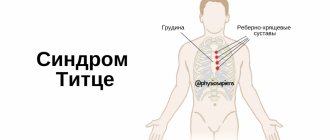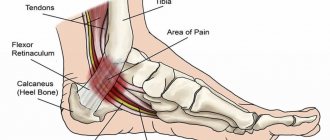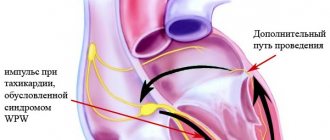Munchausen syndrome is a severe, chronic disorder in which a person deliberately feigns symptoms of illness and self-injures in order to undergo medical treatment and testing. Sometimes patients with this syndrome feign the presence of illnesses so thoroughly that they themselves begin to believe in them. These individuals typically have a long history of testing due to feigned symptoms.
The syndrome was named after Carl Friedrich Hieronymus, Baron von Munchausen, who was famous for telling stories of his fictitious exploits. The term itself was coined by Richard Escher when, in 1951, he first described patients who were faking their symptoms.
General information
Munchausen syndrome is a feigning artificially demonstrative mental personality disorder . It is expressed in the desire or incomprehensible unexplained motivation to exaggerately portray and simulate, sometimes even artificially induce various symptoms of diseases and signs of disability in order to be medically examined, subjected to hospitalization and treatment, up to the appointment of surgical interventions, complex procedures, etc. The main goal of patients is receiving attention and support, while they are convincing, their actions are as believable as possible and inspire confidence. The pathology can be considered as a type of hypochondria .
It is believed that people develop pathological behavior and feign illness in order to receive care, attention from loved ones, compassion, possibly sympathy and moral support, which they most often lack in their normal lives. The disease is severe and chronic, more often observed in young girls and women, in whom it is painful and multi-symptomatic.
The pathology is named after the German baron Carl Friedrich Hieronymus von Munchausen, who became famous for stories about his imaginary incredible feats, the term was proposed by R. Escher in 1951, who noticed in the patients examined the behavior and tendency to invent painful symptoms of a physical or psychological nature.
What leads to the development of pathology
The basis of this mental pathology is a seemingly ordinary desire - to attract attention to one’s person. But what kind of person doesn’t want attention and care? Unlike normal people, patients with this disorder seek increased attention at any cost, including taking medications in increased dosages and causing injury to themselves. Since Munchausen syndrome is a fairly rare disease, the reasons for its development have been little studied, and the roots of the pathology should be sought deeper, in childhood.
It is currently believed that Munchausen neurosis can occur in people with personality disorders or schizophrenia (sluggish or mild form).
Diagnosing a person with Munchausen syndrome is based primarily on the absence of acute psychosis or signs of schizophrenia. Intentional self-harm may be a manifestation of psychosis/schizophrenia. For example, a person in a state of severe mental disorder - psychosis, deliberately pulls out his hair, cuts his skin, etc., not in order to attract attention and achieve care and consolation, but in order to punish himself. Otherwise, any deliberately inflicted injury or caused somatic symptom against the background of complete health (for example, diarrhea as a side effect of a drug) is considered in favor of Munchausen syndrome.
The hypothesis put forward by psychiatrists explains the cause of the development of the disease by some serious problems in childhood. That is, the patient was deprived of love and attention from his parents, but suddenly received both only if he was admitted to the hospital or in any other situation related to medical care. As a result, a distorted logical chain is unconsciously or vaguely formed: pain (severe symptoms) - medical personnel (doctors, nurses, nannies) - care, attention, thorough examination - even more attention. That is, a person with this disorder has distorted ideas about empathy, sincerity and mutual understanding.
Predisposing factors
A high risk of developing this mental pathology is inherent in people with the presence of:
- psychotrauma suffered in childhood:
- past sexual abuse;
- serious illness in childhood and its treatment (increased care, tenderness, attention);
- death of a loved one from a serious illness in childhood;
- low self-esteem, inferiority complex;
- unsatisfied desire to become a doctor;
- hysterical psyche;
- egocentrism;
- personality disorders - emotional infantilism, psychological immaturity, no sense of self-esteem;
- single-parent family (children of single mothers and widower fathers);
- superficial attitude of parents towards the child in childhood (carelessness of parents, lack of time for affection);
- serious stress in the past (I want pity, care, guardianship).
A case from psychiatry
In the psychiatric literature, the story of the patient Wendy is often found, which is interesting not only for the characteristic manifestations of a psychiatric disorder, but also for the complete cure of this pathology.
The patient described was hospitalized about 600 times throughout her life, and in 42 cases she underwent surgical operations. Wendy very reliably described the signs of her invented diseases, depicted their symptoms so artistically that even experienced doctors believed her unconditionally.
Later, when the patient got rid of the illness, she told the doctors about her life, trying to analyze the reason that led to the mental disorder. Wendy's childhood was difficult; she did not experience any love from her parents, nor care and warmth. In addition, there was a history of sexual abuse in her childhood. The only episode that the patient recalled with warmth was a case of appendicitis. It was with an attack of illness that the girl was taken to the hospital, where she was operated on and then received care. The nanny caring for the child was sincerely worried about the girl and took care of her. It was then that Wendy felt happy and loved.
Growing up, the patient found comfort, attention and care only from people in white coats. But hospital travel ended due to two reasons. Firstly, another surgical intervention resulted in a serious complication that threatened death. And, secondly, the once-unloved girl did not at all want to die at this very time, since a creature appeared in her life to whom she was very dear, who loved her sincerely, and whom she herself loved very much - her cat.
Pathogenesis
Disturbances in Munchausen syndrome are behavioral, and they are not caused by external factors and are not logically motivated, for example, the disease is feigned in order to obtain a benefit, gain, or avoid punishment. Self-harm, the desire to receive care and attention are dictated not by consciousness and logic, but by emotions, neurosis , obsession , fear of loneliness, the desire to avoid responsibility, to be more significant, etc. Patients have a constant and irresistible desire to be examined, operated on, undergo various procedures and treatments, and feel superior to medical workers. Such people are also called “professional patients” and they like to play the role of a patient.
It all starts with the fact that they go to hospitals and talk about their fictitious diseases, if nothing can be found, then they begin to fake tests and symptoms, carefully collect a “medical history”, and then they can even go as far as self-harm, which is most often observed pathomimia is self-damage to the skin, especially if all other methods of simulation are impossible. In addition, iatrogenic consequences occur, allowing people to get their way and end up hospitalized and requiring care.
Other characteristic features of the disease
In addition to the motive—to gain attention or sympathy—another feature that distinguishes delegated syndrome from “typical” child physical abuse is the degree of intentionality. While most types of physical abuse involve aggression and abuse of a child in response to some behavior that the abuser does not like (for example, crying, bedwetting, breaking objects, etc.), violence against the victim of the syndrome Munchausen attacks by proxy are usually unprovoked and are pre-planned.
Also unique to this form of abuse is the role that health care providers play, although they do so unintentionally. Without knowing it themselves, they actively contribute to the commission of a crime by treating non-existent diseases in patients who are victims of delegated syndrome. Thus, when I respond to complaints and demands from parents of “sick” children, they unknowingly take part in child abuse. Complex cases that defy simple medical explanation may prompt health care providers to make unusual or rare diagnoses, thereby devoting even more time to the child and the abuser. They may also repeatedly prescribe various procedures and treatments that are, at best, expensive and unnecessary, and at worst, potentially dangerous and harmful to the child's health.
If the attending physician refuses to prescribe further tests, medications, procedures, surgeries, etc., a person with this mental disorder will most likely find another doctor and begin treatment for the fictitious illness in the child all over again. Often, such people resort to complaints against the medical staff, the hospital, or accuse the entire medical system of negligence and negligence for refusing to help the “sick” child and his “selfless parent.” Like those who suffer from Munchausen syndrome, people with the delegated subtype often change treatment facilities and doctors after their lies have been exposed and go to someone who will be willing to meet their level of needs.
Classification
According to the Usher classification, there is acute Munchausen syndrome:
- abdominal , aimed at laparotomy;
- hemorrhagic , occurring when bleeding is demonstrated;
- neurological, including provoking or simulating fainting states and seizures.
In addition to true Munchausen's disease with extreme and long-term symptoms, there is a type of syndrome by proxy or so-called delegated, when a person creates false symptoms in another person, most often in his children. It is usually classified in relation to the victim as abuse syndrome .
Also, a separate type of disorder is hospital flea syndrome or hospital habitué syndrome, when patients make every effort to stay within the walls of the hospital.
Delegated Munchausen syndrome and Polle syndrome
The delegated type of disorder is usually identified in parents of children or in persons performing their duties, who deliberately cause or provoke symptoms of various diseases in a child or person with disabilities. MSBP personalities (Munchausen Syndrome by Proxy) usually invent them in order to contact a medical institution for help. In most cases, this is done by mothers, but there are cases when this behavior is also found in their spouses, and often they themselves may have habits characteristic of true Munchausen syndrome.
A separate type of pathology in adults is Pollet syndrome , expressed in the form of artificial infliction of illness on a child by parents, substitute persons or his guardians. A striking example and founder of the disease was the mother of Munchausen’s daughter, who stimulated right-sided hemiparesis and imitated the manifestations of diabetes mellitus using overdoses of glucose and acetone , and gave her son Promethazine , which provoked convulsions and disturbances of consciousness. This case was described by D. Burman in 1977.
By choosing ways to create a false illness in children, people suffering from delegated Munchausen syndrome are most often prone to provoking bleeding , seizures, coma , diarrhea , vomiting , poisoning , infections , suffocation , fever , allergies and even sudden infant death. The methods of their reproduction are varied, but are done in such a way as to most likely not leave obvious traces, for example, suffocation with a pillow, a plastic bag, a hand, fingers when applied to a child’s nostrils or by pressing with the whole body, as well as dietary restrictions, the use of various drugs and their overdoses, their damage, failure to provide and lack of timely access to medical care. In some cases, parents and caregivers “may rush in to provide assistance” and care when qualified help has already arrived, in order to appear as life-saving heroes.
Artificially created diseases of children are not only difficult to treat, but also supported by their caregivers. People with delegated Munchausen syndrome can cause irreparable harm, including to the psychological and intellectual state of the person under their care, since they not only act independently, but are also subjected to various health-damaging examinations, therapies, procedures and operations that are life-threatening. The condition of such children can be improved quite simply - by isolating them from mentally ill parents or caregivers, and the sooner this happens, the better, because the mortality statistics for children with abuse syndrome is frightening - 10-30%, approximately 8% of children remain crippled for life.
The most dangerous thing is when you meet health workers with a delegated disorder, since the circle of their potential victims is simply huge. It is very difficult to convince such a person to see a psychotherapist or to prove his guilt, so today scientists are making every effort to develop ways to identify MSBP personalities. In general, you can recognize an adult who deliberately causes harm and suffering to a child or simply a ward by their desire to receive the approval of others, attention, admiration, while they have a small number of close social contacts, they are lonely, educated, and often have basic medical knowledge.
Terminology
Mental health professionals have used different names to describe delegated Munchausen syndrome over time. Examples of alternative names that have been used or proposed by psychiatrists throughout the existence of the syndrome are:
- An actual disorder imposed on another (American Psychiatric Association - APA, DSM-5, 2013).
- Factual disorder by proxy (APA, DSM-IV-TR, 2000).
- Fictional disorder by proxy (APA, DSM-IV, 1994).
- Fake or carer-induced disease (Royal College of Paediatrics and Child Health, UK, 2002);
- Factual illness by proxy (World Health Organization, 1996).
- Falsification of a child's condition (USA, 2002). The American Professional Society Against Child Abuse has proposed using this term to diagnose the victim (child). The culprit will be diagnosed with “artificial violation by proxy.” Delegated Munchausen syndrome has been retained as a name referring to a "disorder" that contains these two elements.
- Induced illness (Munchausen syndrome by proxy) (Department of Health and Children, Ireland, 1999–2002).
- Pollet's syndrome. A title created by Boorman and Stevens in reference to the then-common belief that Baron Munchausen's second wife gave birth to a daughter named Polle during their marriage. It was believed that the child died at the age of 10 months from seizures due to unknown causes. But after 1984, the name ceased to be used, as it turned out that these were only rumors and Polle was not the name of the child, but the name of her mother’s hometown.
It is worth noting that no matter what the disorder is called, the harm that is done to a child by those caring for him by making up false symptoms or provoking them can still be called “child abuse.” Because this name reminds us that our focus should always be on identifying and minimizing the negative impact and harm caused to the child, regardless of the motivation of the person who committed the crime.
Causes
The development of pathology is based on incompletely studied factors, as well as psychological aspects:
- dysfunctional and unhappy marriage;
- state of frustration ;
- cerebral dysfunction;
- having close relationships with medical professionals;
- experience working as a laboratory assistant or being hospitalized for a real illness in childhood;
- negative attitude towards doctors and medical institutions;
- lack of psychological support and attention;
- depression;
- different types of dependencies.
There is an opinion that faking an illness is a way to shift attention to the body and avoid painful emotions and hide the psychological trauma of childhood.
Treatment of the disease
Most often, patients with “hospital addiction” syndrome refuse psychiatric treatment because they believe that they are completely psychologically healthy. Only in exceptional cases, during crisis situations, can a patient agree to a consultation with a psychiatrist. This happens when a person begins to feel helpless.
Typically, therapy for the syndrome consists of excluding somatic diseases. In this case, doctors understand that the patient does not require unnecessary operations, procedures and medications. The further task of doctors is to constantly monitor the emotional, mental and physical state of the patient. A course of psychotherapy is required. In addition, experts advise expanding your social circle, getting involved in a hobby, eating right, giving up all bad habits and getting a pet.
Symptoms of Munchausen syndrome
The symptoms and clinical picture of psychological disorder and pathological behavior are usually pronounced, and factitious manifestations occupy a central place in the patient's life. It is possible to recognize Munchausen syndrome by refuting fabricated complaints and by such manifestations as:
- a long history of hospitalizations, in which it was found that the symptoms were feigned;
- pseudology or a tendency to pathological lies and writing fantastic stories, which can occur against the background of self-hypnosis;
- aggressiveness and scandalousness in the absence of the expected attention and interest in the symptoms of an imaginary patient;
- selfharm , pathomimia or deliberate self-harm without suicidal intent;
- secretly taking medications;
- frequent changes of doctors, which may be caused by their refusal to treat a non-existent disease.
Important! Do not try to independently prove to people with Munchausen syndrome the falsity of the nature of the manifestation of an imaginary illness; even providing them with evidence of simulation will not produce the desired effect, but will only increase aggression and other symptoms of Munchausen syndrome; in adults, an integrated treatment approach and thoughtful strategy are important.
Most often, people try to simulate hemoptysis , convulsions , myocardial infarction (by increasing creatinine kinase ), Bartter's syndrome , chronic diarrhea , vomiting, etc. Patients can even achieve a diagnosis; they often undergo hospital treatment and carefully collect documents to confirm the simulated pathological condition.
Ways to imitate symptoms of Munchausen syndrome
- falsification of medical records of research results;
- muscle injury, for example, from blows with a wet towel;
- pinching the skin (pathomimia) to create external manifestations of hemorrhagic diathesis ;
- manipulating a thermometer to simulate a fever;
- swallowing small objects helps to achieve various surgical interventions;
- purchasing blood from laboratories and other patients for mixing with feces and saliva, thereby simulating bleeding, the source of which cannot be found during examination;
- secretly taking diuretics and artificially inducing vomiting raises suspicion of Bartter's syndrome;
- the introduction of adrenaline into the bloodstream or urine is a sign of a catecholamine-secreting tumor ;
- self-administration of glucocorticoids mimics conditions such as Cushing's syndrome ;
- taking Levothyroxine allows you to simulate hyperthyroidism ;
- anticoagulants help cause bleeding;
- with the help of insulin secretagogues or insulin , people with Munchausen syndrome imitate a state of hypoglycemia ;
- diluting samples for stool analysis with water or overusing laxatives can simulate chronic diarrhea;
- Taking emetics, such as the herbal medicinal plant ipecac root emetic, can cause uncontrollable and excessive vomiting;
- by injecting egg white into the bladder or adding it to urine samples, patients feign proteinuria ;
- To achieve hematuria , people add blood to urine tests and go to such extremes as special trauma to the urethra and the introduction of foreign bodies.
How can a victim cope with the negative consequences of the syndrome?
Providing safety and protecting the child from negative influences are priority methods in combating the consequences of this syndrome. This can be done by protecting him from an adult suffering from Munchausen syndrome by proxy until the latter finally gets rid of this mental disorder. The child should be treated for any existing medical problems and monitored for health. In most cases, the symptoms of the disease stop once the victim is away from the caregiver. Psychological treatment may be necessary as the child recovers to help him overcome the trauma and stress caused by long-term abuse.
To date, there is little research on what happens to people who have had these types of negative experiences. But it was found that children who were victims of delegated Munchausen syndrome may experience developmental delays, behavioral problems, constant feelings of anxiety and restlessness, but problems with concentration were not noted. Such children will have problems learning at school due to the fact that they spent a lot of time in the hospital and missed a lot of new material. It is also possible that they may continue to believe that they really are sick and need urgent treatment. In such cases, you cannot do without psychiatric help. According to experts, in order for a person to fully cope with the consequences of the trauma received as a result of this syndrome, he may need years of psychological therapy and support. According to a study conducted in 1995, children affected by Munchausen syndrome by proxy subsequently had emotional and physical problems. They were haunted by the feeling that they were unloved and unwanted, and they also felt that they were not safe. As adults, they experienced uncertainty and symptoms of post-traumatic stress and avoided medical treatment.
Tests and diagnostics
There are difficulties in diagnosing true Munchausen syndrome, because the boundaries between factitious psychological disorder, malingering and somatization are blurred. Different conditions for the development of pathology necessitate the search for alternative names for them. To determine factitious disorder, the following criteria are used (source Wikipedia):
- identifying deliberately reproduced feigned symptoms, as well as self-harm to produce fake symptoms;
- implausibility of anamnestic data;
- lack of external motivation and benefits;
- the most important condition is laboratory confirmation of the feigning nature and the absence of the physical, organic nature of the symptoms.
The nosological system used in the USA - DSM-5 , identifies its criteria for Munchausen syndrome:
- identified falsification of psychological or physical symptoms and signs;
- in a person's understanding he is sick, weakened or injured;
- a false disease state is caused even in the absence of obvious benefit;
- the feigning state cannot be explained by other mental disorders - delusional or schizotypal .
To identify the fabrication of complaints, analyzes and an objective investigation are carried out to identify inconsistencies between the signs of the disease and the anamnesis data.
In some extremely dangerous cases, a psychiatric examination may be prescribed.
Diet for Munchausen syndrome
Diet on vegetables and fruits
- Efficiency: 3-4 kg in 7 days
- Lead time: 3-7 days
- Cost of products: 1200-1300 rubles. in Week
The key to success in eliminating psychogenic forms of pathological conditions is a healthy lifestyle. This includes hobbies, physical activity, building healthy close social connections, and eating a healthy, balanced and varied diet. It’s good if the patient makes it a habit to prepare tasty and healthy food for himself, which will delight him and motivate him to be healthy, work and develop. There are many healthy eating plans and they are all built on a balance of protein, fat and carbohydrates. The main thing to remember is:
- pamper yourself with seasonal fruits and vegetables;
- prepare food by boiling, baking, stewing, cooking in a double boiler or multicooker;
- consume high-quality farm meat, eggs and dairy products;
- build the carbohydrate part of the diet on cereals and whole grains;
- minimize simple carbohydrates and caffeine;
- maintain water balance with clean water, herbal and other teas, natural fruit drinks, compotes and juices.










